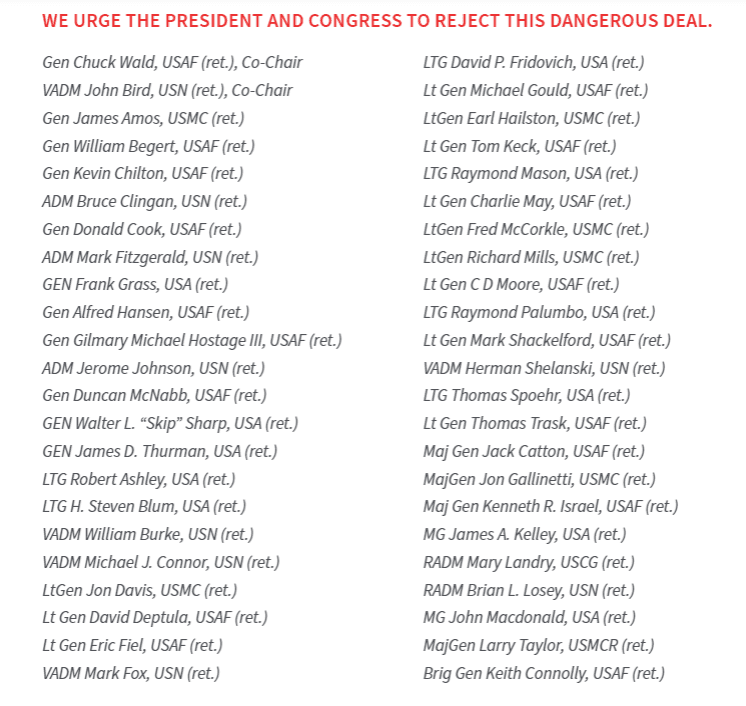Dozens of retired U.S. generals and admirals published an open letter to President Joe Biden on Tuesday to express their disagreement with a potential Iran nuclear deal.
“In Ukraine, we are bearing witness to the horrors of a country ruthlessly attacking its neighbor and, by brandishing its nuclear weapons, forcing the rest of the world largely to stand on the sidelines,” the letter stated. “The new Iran deal currently being negotiated, which Russia has played a central role in crafting, will enable the world’s leading state sponsor of terrorism to cast its own nuclear shadow over the Middle East.”
The letter was written in coordination with the Jewish Institute for National Security of America (JINSA) and represented 46 top military officials.
“As retired American military leaders who devoted their lives to the defense of our nation, we op-pose this emerging deal that is poised to instantly fuel explosive Iranian aggression and pave Iran’s path to become a nuclear power, threatening the American homeland and the very existence of America’s regional allies,” the letter continued.

The generals and admirals argued that the new deal is “shorter and weaker” than its predecessor and would fail to put Iran “in a box, as promised.” The letter also highlighted that the agreement “does not prohibit Iran’s development of intercontinental ballistic missiles, allowing it to acquire the means to target the American homeland with nuclear weapons.”
Additionally, the group pointed out that the deal would lift sanctions, giving the “radical regime in Tehran” the chance to earn “hundreds of billions of dollars…to fuel greater aggression against U.S. soldier and our allies in the region.”
“America’s closest regional partners, attacked regularly by Iran, already strongly oppose the proposed deal. If we will not help protect them against Iran, we cannot expect their help addressing threats like Russia and China,” the letter added. “We instead support diplomacy that would genuinely end the threat posed by Iran’s military nuclear program and counter Iran’s regional aggression, backed up by credibly drawn and enforced redlines against Iranian nuclear and regional escalation.”
Ret. Air Force Gen. Charles Wald said he supports “the idea of an agreement,” but not the current deal.
“The idea of an agreement is a good idea. We agree with diplomacy,” Wald told Fox News. “But we agreed with a fair agreement that would not allow Iran to have a nuclear weapon breakout and then have weapons delivery systems that would then change the dynamic in the Middle East – particularly for Israel but all other countries too.”
In 2018, then-President Donald Trump announced he was withdrawing from the Iran nuclear deal and imposing the “highest level” economic sanctions against the Middle Eastern nation.
“The United States will withdraw from the Iran nuclear deal,” Trump said at the time, calling the deal “defective at its core” and a “disastrous deal” that gave the Iranian “regime of great terror” billions of dollars.
“[…] America will not be held hostage to nuclear blackmail [and we] won’t allow American cities to be threatened with destruction,” he said, later saying that the withdrawal will help keep Americans safe. “The Iranian regime is the leading state sponsor of terror. No action taken by the regime has been more dangerous than its pursuit of nuclear weapons and the means of delivering them.”



